03:00
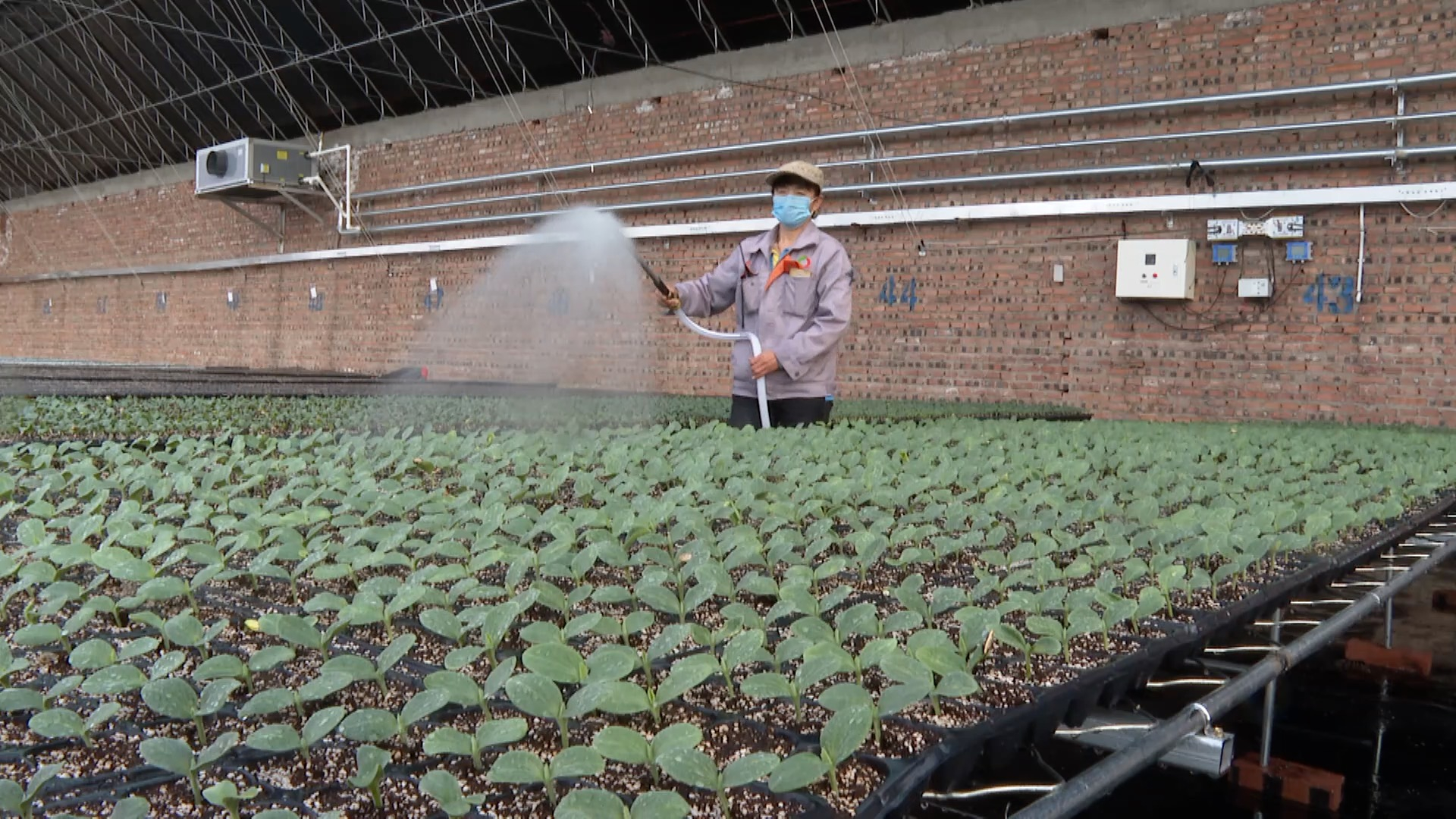
The annual spring plowing season in northeastern China coincides this year with the ongoing nationwide battle against the novel coronavirus epidemic. At Damintun Village in Liaoning Province, a major vegetable producing and distributing center in the region, this year's preparation is different from previous ones.
Farmers busy grafting fruit and vegetable seedlings on a cooperative farm named Qiushi have had thorough health check and disinfection. "Mask on, mouth shut" is their principle to keep safe from the novel coronavirus, while trying to ensure the annual ritual not to be disrupted.
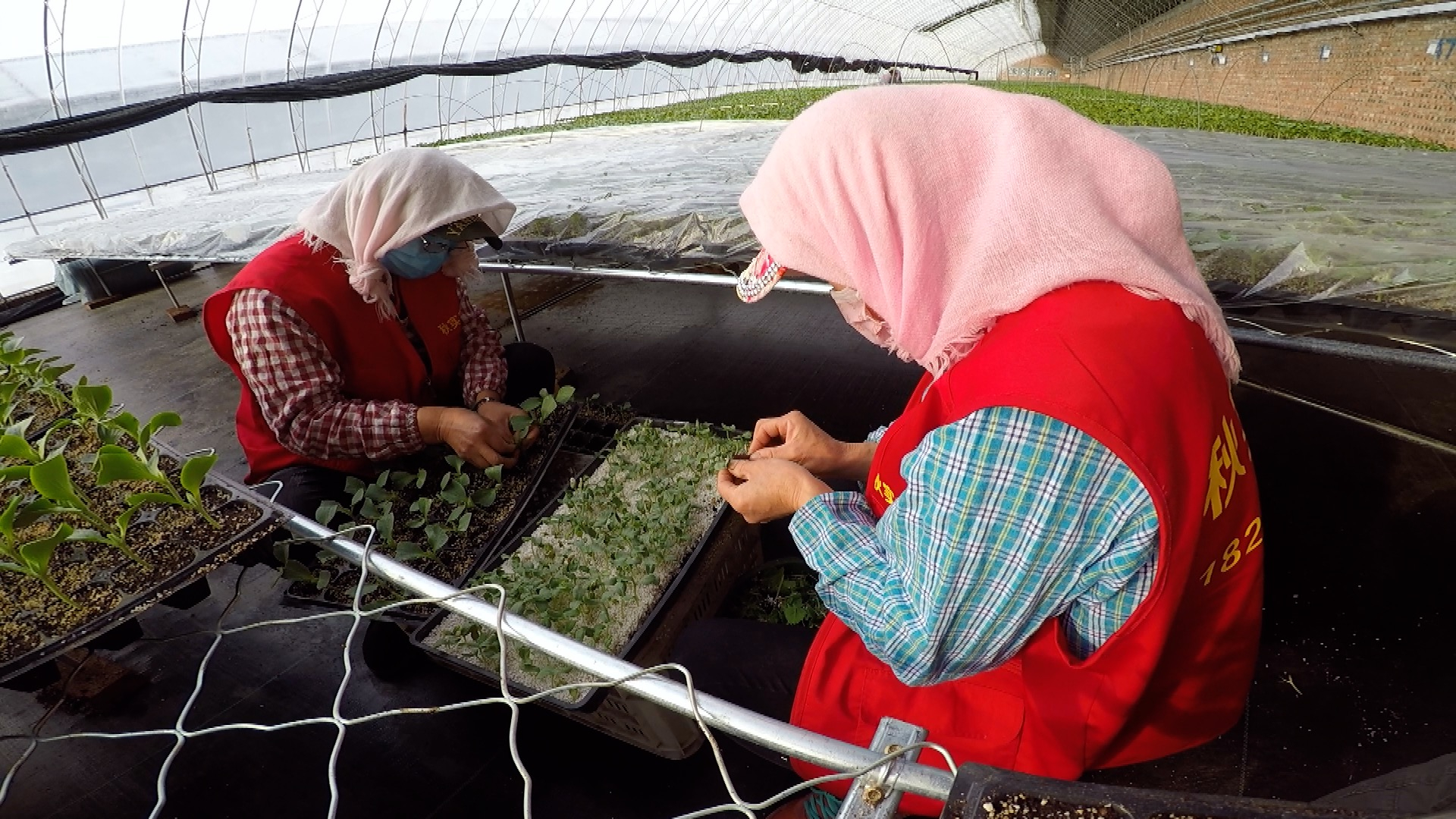
The epidemic inevitably affects the efficiency during the key spring period, according to Yu Xiaomin, a seedling nursery director.
"Our workers are mostly hired from outside. We used to need six to eight people, but now we only have two pairs working at the same time," Yu explained, saying they have to work overtime to meet the deadline.
Normally, a few weeks after the seedlings are grafted, they'd be handed over to vegetable growers for spring planting, which usually falls in March and April in the freezing northeast. Fu Xincheng, a greenhouse vegetable grower in the village, who has also ordered tens of thousands of seedlings this year from Qiushi Agriculture, found the seedlings grow well but come in different sizes, which means he has to categorize and transplant them in batches.
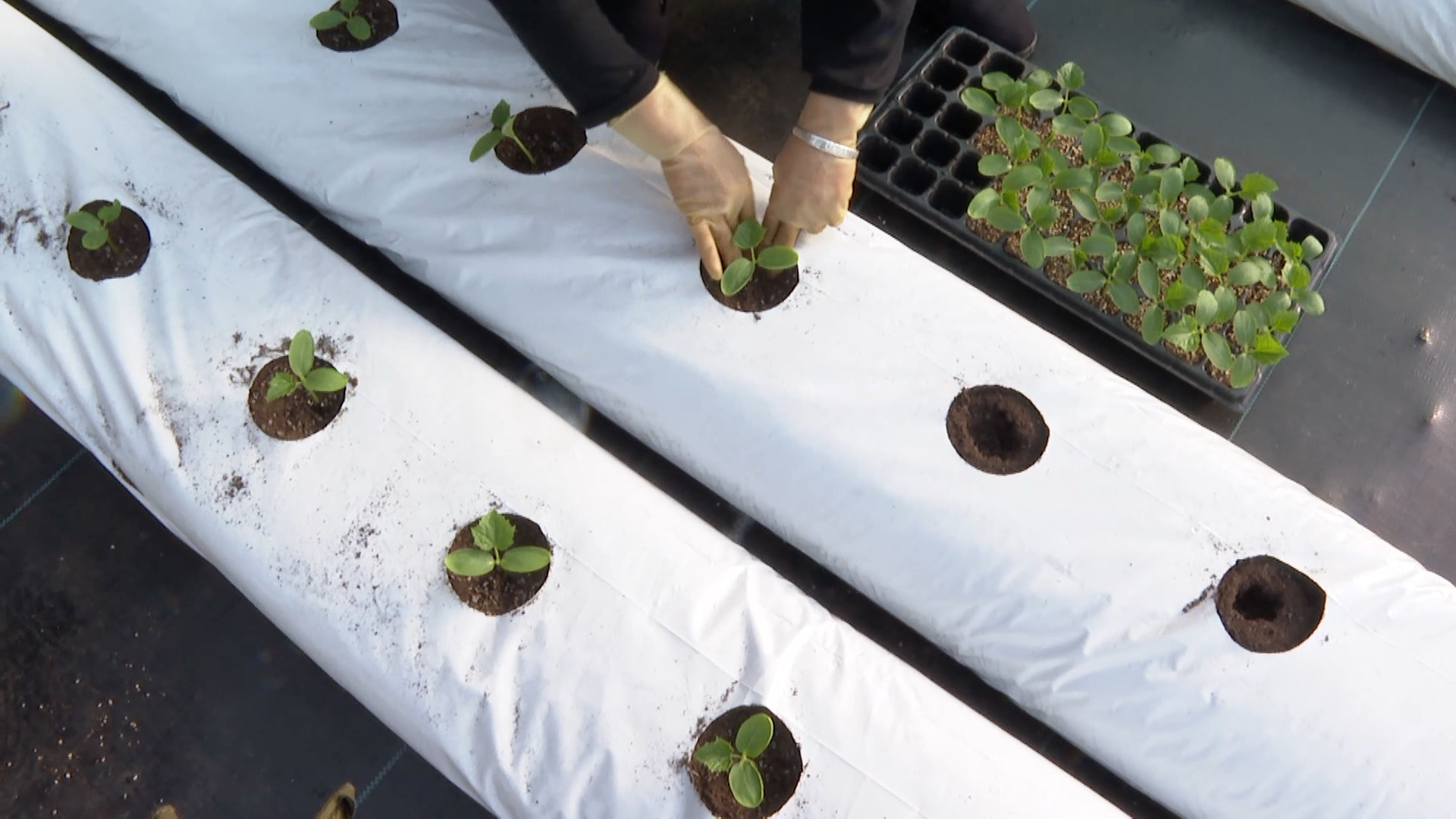
"Transplanting will be delayed by a few days, and so will the harvest. But we've spoken to supermarkets that we've signed contracts with, and they said it doesn't matter due to the epidemic. A later harvest won't reduce our yield or the price they pay," said Fu.
Unlike traditional farming, modern agriculture is less affected due to its reliance on technology. Qiushi's plant factory, which covers an area of 2,500 square meters, requires only two maintainers yet produces 250 kilograms of vegetables every day.
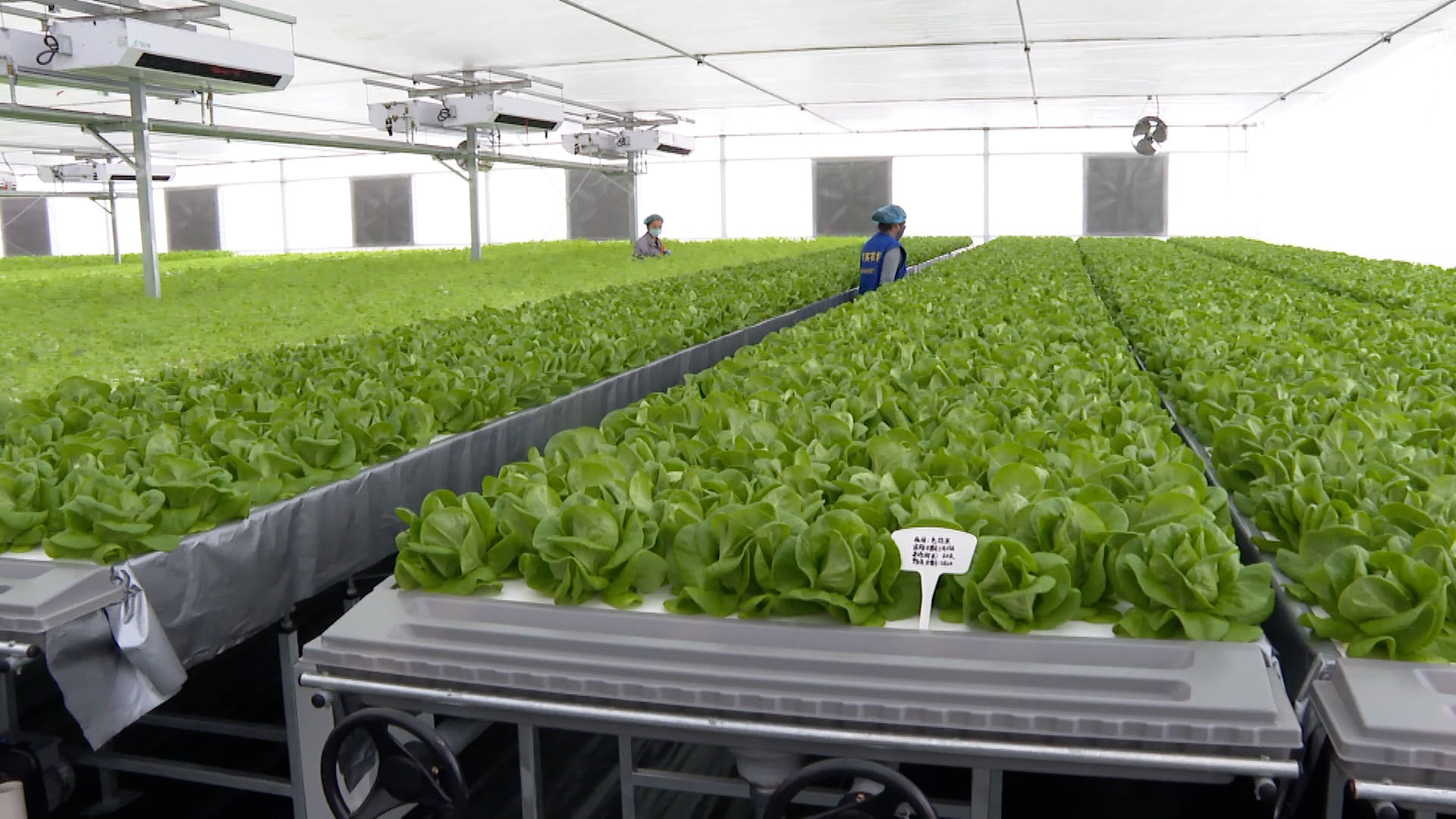
"It greatly reduces the risks of labor mobility and density," said Luan Bing, president of Qiushi Agriculture. And she also noted another advantage of facility agriculture that the growth of water-planting vegetables is quantifiable and highly standardized. "So even during the outbreaks, we can still continue to provide surrounding residents with safe and healthy vegetables," said Luan.
But given the various disruptions during the epidemic, can these freshly-picked vegetables make their way to their intended customers? Bing Yinghui, chairman of Qiushi Cooperative Planting Association, said orders from office and school canteens had been affected. But the good news is they're selling more than usual to big supermarkets as they have resumed business to ensure supply during the epidemic.
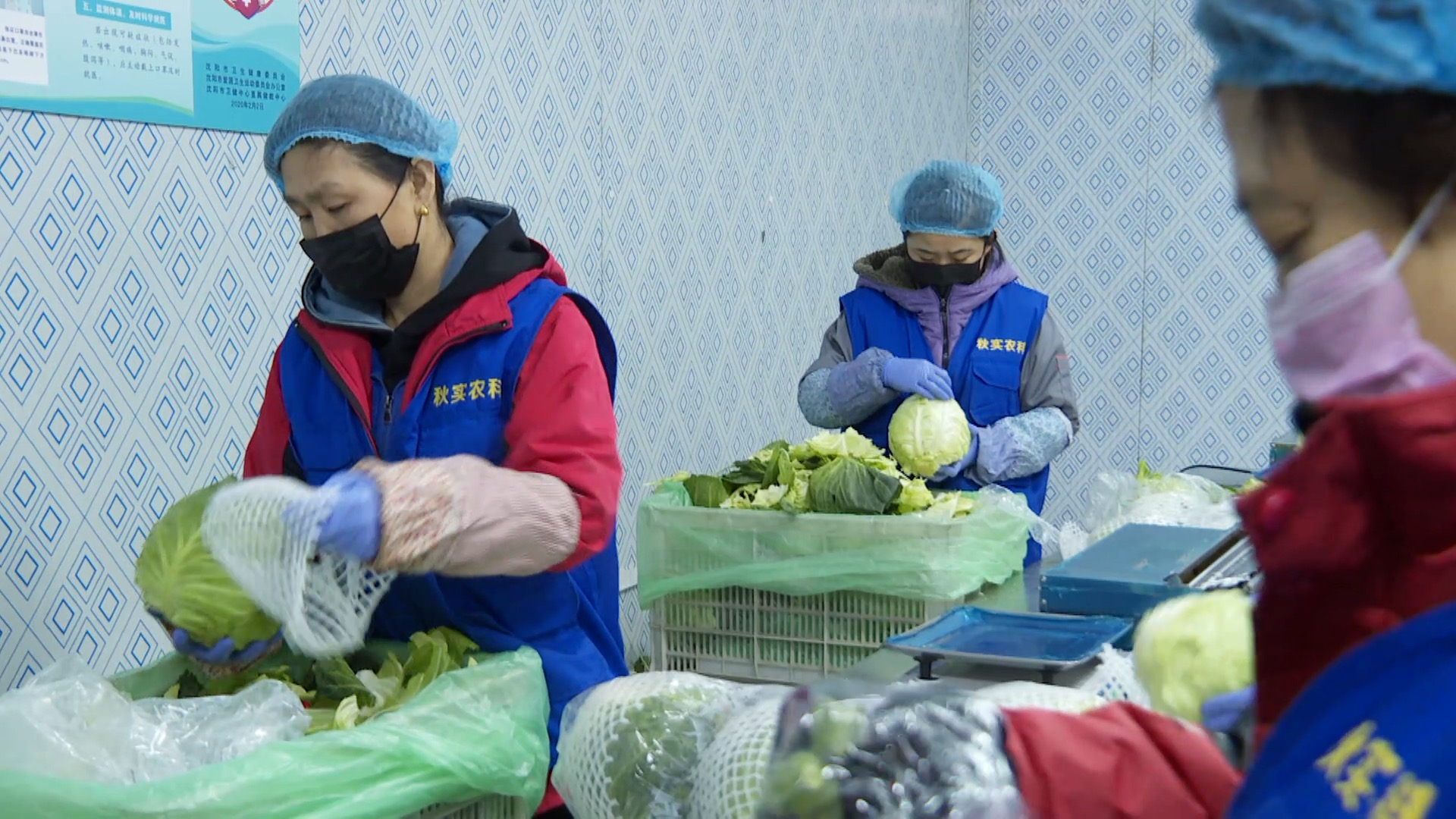
Under strict travel restrictions, farmers also need to fork out more time, money and labor in getting seeds, pesticides and other farming equipment while selling their produce. But as some low-risk areas across the country, including Liaoning Province, recently downgraded their responses to public health emergency, the impact of the lockdown will no longer hinder farming or the sales of crops, as long as the infected cases are under control.
"Village traffic conditions have been improved. Unlike in the past days when country roads were closed down, except for only one passage way, now most of them have re-opened," said Bing Yinghui. Villagers also told us that fertilizer and other supplies are getting in place as the outbreak has eased lately down here.
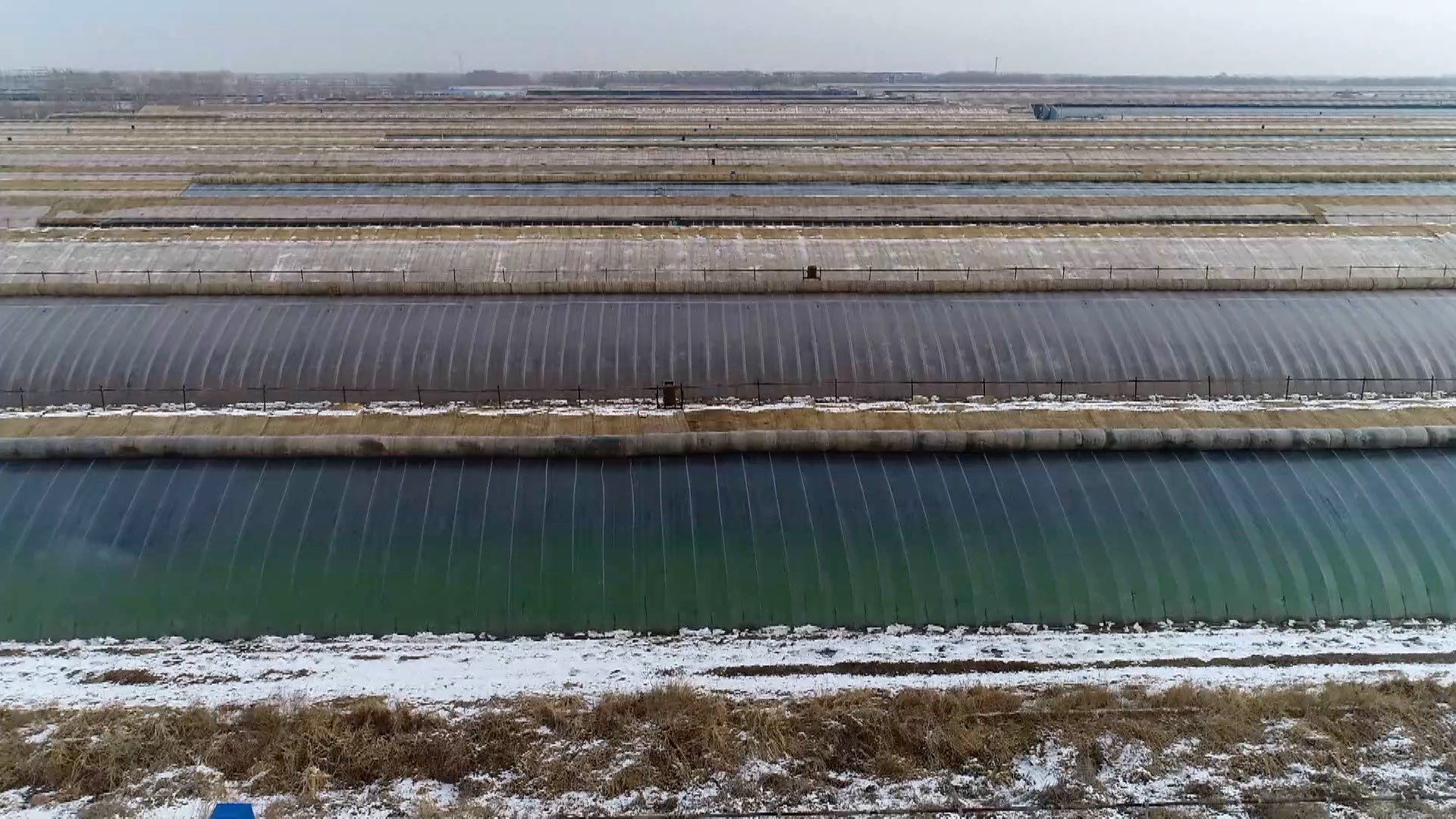
Li Hongtao, head of the village, said the local government has been actively responding to spring plowing preparation amid the epidemic. He said they have taken measures to register and track every vehicle and all personnel at every vegetable trading location, so as to prevent cross-infection and contamination of agricultural produce throughout the transportation process. "We also actively connect financial institutions with our farmers who need loans so that they can get the financial support they need to prepare for spring production," said Li.